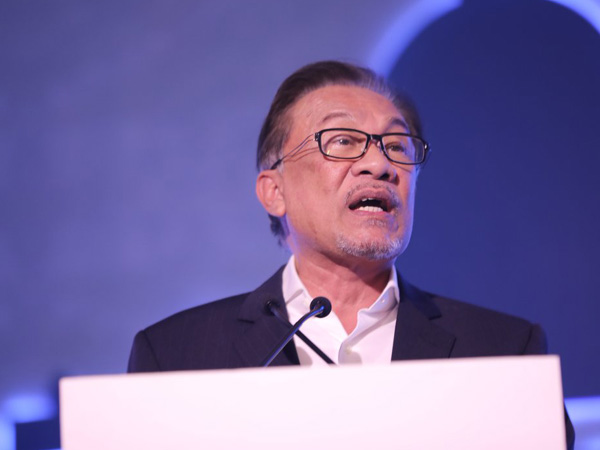New Delhi: The new world order must be multifaceted and collaborative, and not simply competitive, member of the Malaysian Parliament Seri Anwar Ibrahim said on Thursday.
Addressing a valedictory speech at the closing ceremony of the Raisina Dialogue 2019, the Malaysian MP said, “The big picture reoriented is the present challenge that faces us all. We cannot afford to face the future as a competitive zero-sum game. The new world order must be multifaceted and collaborative. It must not simply be competitive.”
“The trouble is that the future is harder to perceive because we are immersed in the present uncertainties of post-normal times. Things are changing rapidly and contradictions proliferate,” he added.
During the ceremony, Ibrahim said that he has been visiting India for over four decades, during which he learnt “what it means to be part of such a rich civilisation”.
Ibrahim initiated his speech by uttering two statements, which are used to describe India “so much so that it has become a cliche.” The first statement, he said, was “India is a land of contradictions”, with which he wholeheartedly disagrees, while the other was of India being an “enigma”, which, according to him, is true.
Speaking of the 9/11 attacks and its aftermath, Ibrahim said, “We saw the rise of the surveillance state and the erosion of civil liberties”.
“At the conclusion of the fifth Raisina Dialogue, we find ourselves more and more baffled,” Ibrahim added.
At the Raisina Dialogue, with the theme of — “A world re-order: new geometrics, fluid partnerships, and uncertain outcomes”, the Malaysian MP also condemned identity politics and accused it of creating an “environment of violence and unrest.”
“The resurgence of ultra-nationalism is a global phenomenon. It is a precursor to fear and a danger to peace and security. Identity politics and polemics contribute to the conditions in which the seductive call to violence festers. We must reject it,” Ibrahim said. “The questions raised by identity politics and contested histories cannot be brushed aside. These are crucial areas where the fate of new departures for politics, economics, and international relations will be decided” he further said.
Furthermore, Ibrahim noted that if the world were to take one lesson from the Malaysian story, it would be “managing a coalition of bitter rivals and different ethnicities and religions are at times, Olympic, in the effort required”.
In his concluding statement, Ibrahim mentioned, “the noble path which calls to us, where we are unwavering in the commitment to principles which are universal and timeless, is a journey, albeit difficult, that can bring us to a better place”.
The fourth Raisana Dialogue witnessed participation of over 1,800 individuals, including more than 600 delegates and speakers from 92 countries.
[source_without_link]ANI[/source_without_link]

